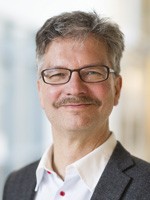Creativity lab
Status:
Start date:
End date:
The project aims to increase creativity in groups of interacting people, such as management teams and project groups, to improve long-term planning and problem solving, increasing the opportunities to meet future challenges, and thus increase our society's sustainability. Practical goals of the project are to formulate actionable knowledge about group creativity and to develop a creativity lab where groups can have creative meetings. Eight theoretically founded hypotheses are formulated to achieve the practical goals. For each of these hypotheses technical solutions will be developed to study and support creativity.
The first group of hypotheses examines if the findings from research on individual creativity are compatible with creativity at the group level. Five hypotheses will be examined: the importance of quantity, of divergence, of motivation, of intelligence and the importance of the physical environment. The second group of hypotheses examines how group creativity may be increased. What conditions and attitudes are favorable for the emergence of emergents, which are good for the group's creativity and for a phase transition to a creative thought and behavior patterns? Three hypotheses will be examined; the importance of group ideas, of having multiple communication channels with different modus and to get feedback on the group process.
The project has two goals of more theoretical interest. The project's first theoretical goal is to investigate whether the group can be seen as a creative subject. To achieve this goal, the project to study emergence and phase transitions. The other goal is to investigate the creative potential of descriptive language and how different description modus function in processes of idea development.
| First Name | Last Name | Title |
|---|---|---|
| Tomas | Backström | Professor |
| Anette | Strömberg | Senior Lecturer |
| Bengt | Köping Olsson | Senior Lecturer |
Emergent leadership of creative groups. (Jul 2010) Bengt Köping Olsson, Tomas Backström, Judit Simon Creativity and leadership in science, technology and innovation
Shared vision as an order parameter (Apr 2010) Tomas Backström, Anette Strömberg, Carina Sjödin Society for chaos in psychology and life sciences international conference
Beskrivningsspråk i och för kreativ praxis: Idéutveckling under gruppsession (Nov 2008) Bengt Köping Olsson
Languages for creative interaction: descriptive language in heteregeneous groups (Oct 2007) Bengt Köping Olsson The 10th European conference on Creativity and Innovation, ECCI-X
The language of interaction: creative tension in heterogeneous groups (Mar 2007) Bengt Köping Olsson Workshop on This Motley Crew: managing creatives and the creative unit
Improvisation - intuition eller vetenskap?: metodiska och pedagogiska konsekvenser av 8 pianisters improvisationer (Jun 1993) Bengt Köping Olsson




